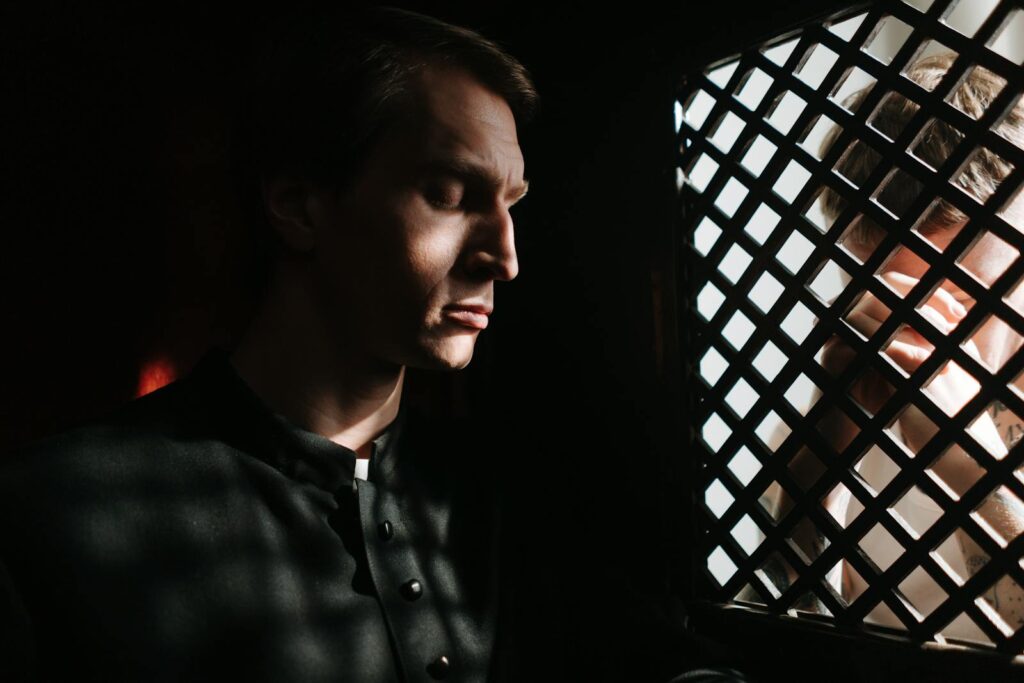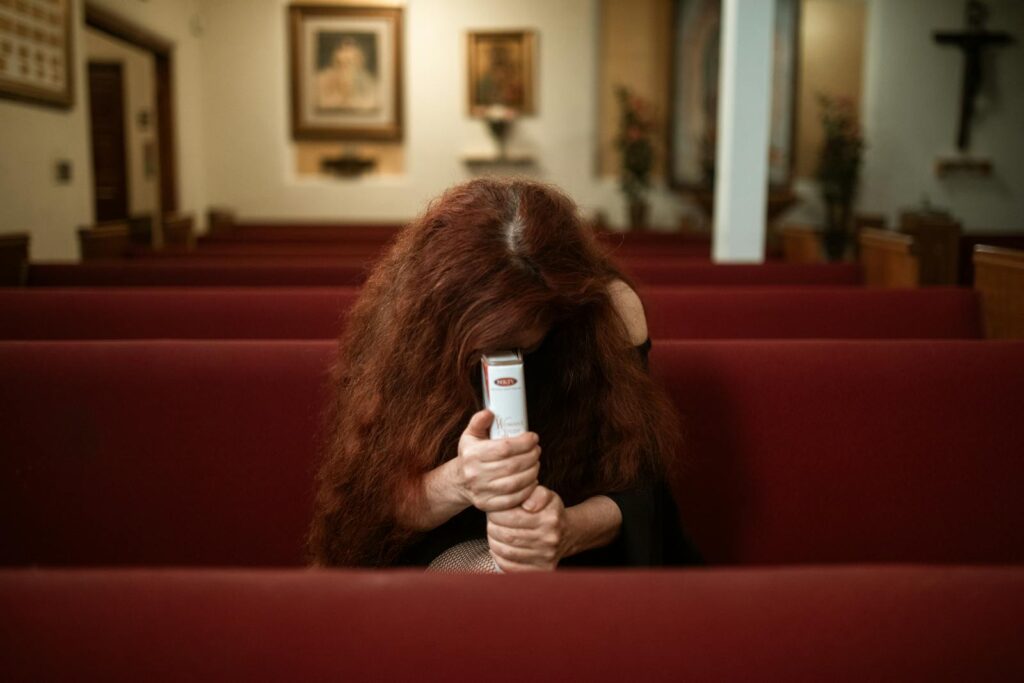
Faith can be a guiding light for many people as it offers hope, purpose, and strength. Yet for some, the very experiences and questions that arise within their spiritual journey lead them away from belief. These shifts rarely happen instantly because they are shaped by struggles and contradictions that make faith feel less certain over time. Here are 15 harsh realities that can push believers toward atheism:
They Struggle With Unanswered Prayers

When all your prayers seem to go unheard, especially during seasons of pain, believers begin to wonder if anyone is really listening. They may pray faithfully for healing, guidance, or relief, yet silence meets them instead. This can create a sense of abandonment that is very hard to ignore. The longer this silence continues, the more doubt grows, making it difficult to hold on to trust.
They See Hypocrisy in Religious Leaders

Faith is deeply tied to the people who represent it, so when leaders fail morally or misuse power, it shakes trust. Scandals of greed, dishonesty, or abuse leave believers feeling betrayed. The message preached does not match the lives of those in charge, and the gap is too wide to overlook. For some, this hypocrisy makes faith feel more human than divine.
They Witness Innocent Suffering

The question of why the innocent suffer has troubled believers for centuries. Seeing children in pain, disasters destroy families, or tragedies strike without reason leaves many searching for answers that do not come. When suffering seems endless and random, it challenges the idea of a loving and just God. For some, the lack of explanation makes belief feel impossible to keep.
They Feel Judged Instead of Loved

Communities of faith are meant to provide support and compassion, but sometimes they become places of criticism. Believers who constantly feel judged or shamed instead of encouraged begin to lose trust in the message of love. The focus on rules and punishment overshadows grace. When faith feels more condemning than uplifting, it drives many to step away.
They Notice Division Among Believers

Unity is spoken about in faith, yet division is what many people see. Arguments over doctrine, tradition, and authority leave people feeling very disappointed. When one group insists they hold the truth while another claims the same, it creates so much confusion. This constant division makes some people question whether absolute truth exists at all, and it leads them to walk away from religion entirely.
They Struggle With Science and Faith

As knowledge of the natural world grows, some believers find it harder to reconcile scientific discoveries with religious teachings. The conflict between what they learn and what they are told creates tension. While many find ways to hold both together, others cannot bridge the gap. For them, the evidence of science feels more reliable than the explanations offered by faith.
They Feel Exploited Financially

When churches or leaders seem more focused on money than ministry, believers begin to doubt motives. Pressure to give, along with seeing wealth misused, can feel manipulative. Instead of feeling cared for, they feel taken advantage of. The misuse of money in the name of God creates deep disappointment. For some, it becomes a turning point that pushes them out.
They Carry Wounds From Trauma

For those who have been hurt within a religious setting, faith becomes tangled with pain. Abuse or deep disappointment leave scars that are hard to heal. Instead of drawing comfort from their beliefs, memories of trauma only reopen wounds. In order to protect themselves, many step away. Leaving faith becomes less about rejection and more about survival.
They See Religion Used for Power

Throughout history, religion has been tied to wars, oppression, and discrimination. Seeing belief used as a tool to control or harm makes many question its sincerity. When faith is linked to human power struggles instead of compassion, it feels very distorted. This awareness pushes some believers to step back entirely and they are unable to separate the message from the misuse.
They Are Discouraged From Asking Questions

True faith invites growth, yet some communities silence curiosity. When questions are seen as doubt or rebellion, believers feel stifled. Instead of finding understanding, they are told to simply accept without any explanation. All the unanswered questions turn into heavy doubts. Many who longed for guidance end up searching outside of religion, eventually finding no place for belief.
They Notice Contradictions in Scripture

For some people, close reading of sacred texts leads to confusion instead of clarity. Verses that appear inconsistent or conflicting make it difficult to see scripture as divinely perfect. While some find ways to interpret all these differences, others cannot ignore them. The more contradictions they see, the less solid the foundation of faith feels. For many, this becomes a breaking point.
They See Morality Without Religion

One of the strongest realizations for some is that kindness and goodness exist apart from faith. Meeting people who live ethically without belief challenges the idea that morality comes only from God. This recognition changes perspective. If people can love and act justly without religion, then faith no longer feels necessary. For some, it opens the door to atheism.
They Feel Abandoned in Times of Pain

Believers turn to God with desperate hope during suffering. When silence continues in those darkest hours, it feels very crushing. Instead of comfort, they experience emptiness. This absence during moments when they need Him most leads them to doubt His presence at all. Over time, repeated disappointment creates a distance from faith that many do not return from.
They Experience Fear Instead of Freedom

Religion is meant to bring peace, but for some people, it becomes tied to fear. Warnings of punishment, eternal separation, or rejection make belief feel like a burden rather than a blessing. Instead of drawing them closer, fear drives them away. They begin to question whether true love would depend on fear. This struggle often leads them to let go of faith.
They Long for Proof They Never Find

Many believers quietly wish for undeniable signs that God is real. They hope for evidence that would make faith unshakable. When these moments never come, they begin to feel like belief is built only on imagination. The absence of proof becomes much more loud than all the promises. This unmet longing turns into the final step away from faith.

